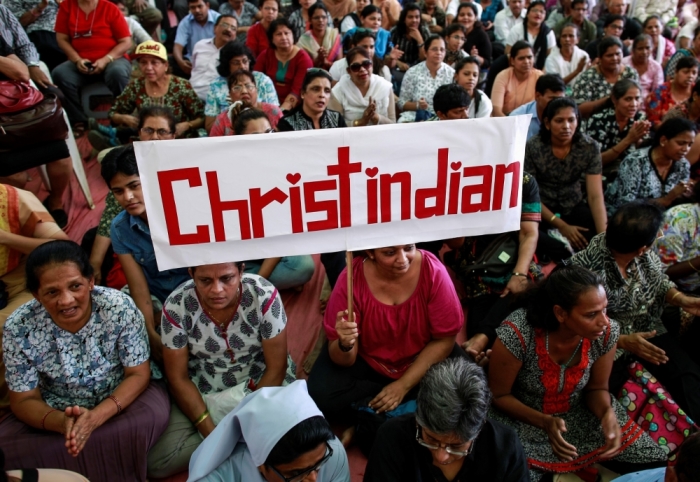India: Christians warn against law raising punishments for 'forced' religious conversions

A state in India has passed a new law broadening the definition of illegal conversion and creating stiffer penalties for those accused of forced conversion. Critics fear the update to the so-called religious freedom law will be used by Hindus to further harass Christians.
The Freedom of Religion Act 2019 was unanimously approved in a voice vote by the legislature in the northern Indian state of Himachal Pradesh on Aug 30. The state Legislature is led by the Hindu nationalist Bharatiya Janata Party, according to The Hindu.
The bill raises the maximum punishment for violating the forced religious conversion law from three years in prison to seven. It replaces the state’s Freedom of Religion Act of 2006, which banned religious conversion as a result of force or inducement.
The new law extends the definition of forced religious conversion to include conversion that takes place as a result of misrepresentation, force, undue influence, coercion, inducement, marriage, or other fraudulent means.
Himachal Pradesh is one of seven states in India that have forced religious conversion laws. Critics say these laws are often abused by Hindu radicals to persecute Christians and other religious minorities.
Across the country, examples of abuse of the law have been seen in the arrests of Christians escorting children to summer camps and the arrests of Christian pastors during worship services.
"The previous 2006 law provided for a maximum of [three] years in prison for those who broke the rules,” Sajan K George, president of the Global Council of Indian Christians, told the Catholic news agency Asia News. “The new law contains some terms that were absent in the past, such as coercion, misrepresentation, marriage, excessive influence. Section 5 of the law declares marriage to be null and void if was done for the sole purpose of conversion."
George warned that "anti-conversion laws discriminate against religious minorities” and are used as a “tool to harass vulnerable Christians.”
“They can plant seeds of sectarian suspicion among communities that have lived together in a peaceful manner and can be used against the weakest in society, in particular Dalits, women and children,” George stressed.
Under the new law, those found guilty of conversion by force, deception or marriage can be sentenced to between one to five years in prison. But if those who were converted are Dalits (the lowest caste), or women and children, the maximum punishment increases to seven years in prison.
The new law also requires people seeking to convert religions and the priest doing the converting to notify the district magistrate one month before the conversion takes place.
The Hindu reports that Chief Minister of Himachal Pradesh Jai Ram Thakur argued that the new law is needed because of the rise of religious conversions in the state.
International Christian Concern, a nonprofit organization based in the U.S. that monitors Christian persecution worldwide, reports that Hindu radicals often use the “conspiracy” of mass religious conversions to pass laws that limit religious freedom. Christians are often accused of fraudulently converting Hindus.
“However, according to India’s own population data, the conspiracy of mass conversions to Christianity does not hold up,” an ICC report from Monday reads. “In 1951, the first census after independence, Christians made up only 2.3 percent of India’s overall population. According to the 2011 census, the most recent census data available, Christians still only make up 2.3 percent of the population.”
The ICC is also warning that anti-conversion laws are “widely abused” in the states where they are enacted — Odisha, Madhya Pradesh, Arunachal Pradesh, Chhattisgarh, Gujarat, Himachal Pradesh, Jharkhand, and Uttrakhand — as nationalists accused Christian leaders and evangelists of forcible conversion to justify harassment or assault.
“Local police often overlook this harassment due to the false accusation of forced conversions,” ICC notes.
India ranks as the 10th worst country in the world when it comes to Christian persecution, according to Open Doors USA’s World Watch List. Since the BJP came to national power in 2014, Hindu nationalist attacks against Christians and Muslims have increased.
Several cases have been reported over the last few years of Christians arrested after being accused of forcible conversion.
In May 2017, at least 11 chaperones transporting 70 children to a Christian camp were arrested in Madhya Pradesh after they were accused by Hindu radicals of forcible conversion.
Last September, in Uttar Pradesh, it was reported that at least 10 pastors were arrested after authorities stormed church services across the state after Hindu radicals made accusations of forced conversions.
Follow Samuel Smith on Twitter: @IamSamSmith
or Facebook: SamuelSmithCP




























